Embrace AI data infrastructure, which is always up and running to meet your ever-evolving AI data needs in developing powerful computer vision for self-driving cars, smart navigation systems, and AI-assisted traffic management & other transportation mechanisms.
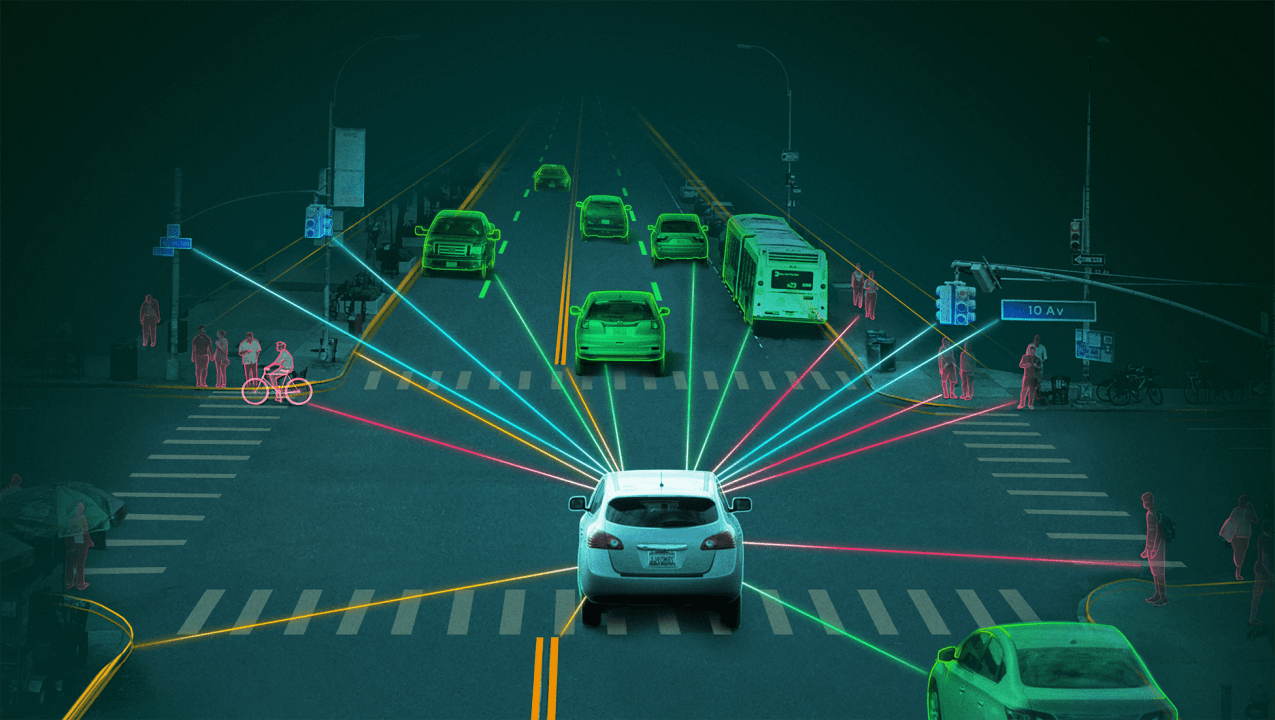
A hub of in-house experts to enrich data to enable self-driving cars’ computer vision to recognize, interpret, and interact with real-time objects on the road. Cogito offers extensive data annotation services to train ML algorithms for accurately infusing AI in self-driving cars.
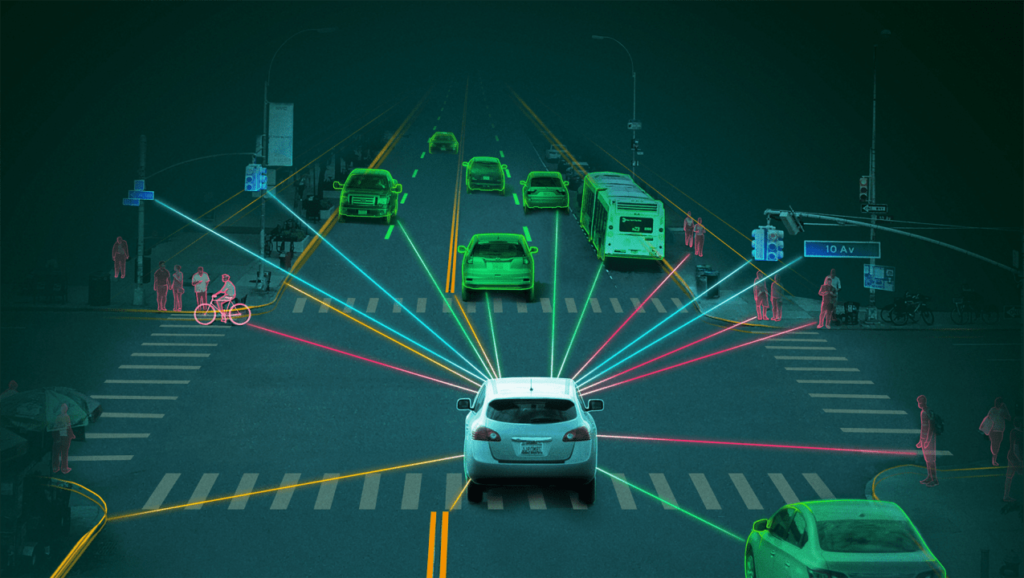
An autonomous vehicle relies on its ability to perceive its surroundings for safe driving. Here, experts can annotate bounding boxes to enable a car’s computer vision system to accurately measure the distance and dimensions of objects on the road and sideways.
The ability of a car’s computer vision system to detect objects may be compromised by high-resolution data containing millions of data points. Employ 3D cuboid annotation in data to discern the driving environment to avoid collisions as accurately as possible.
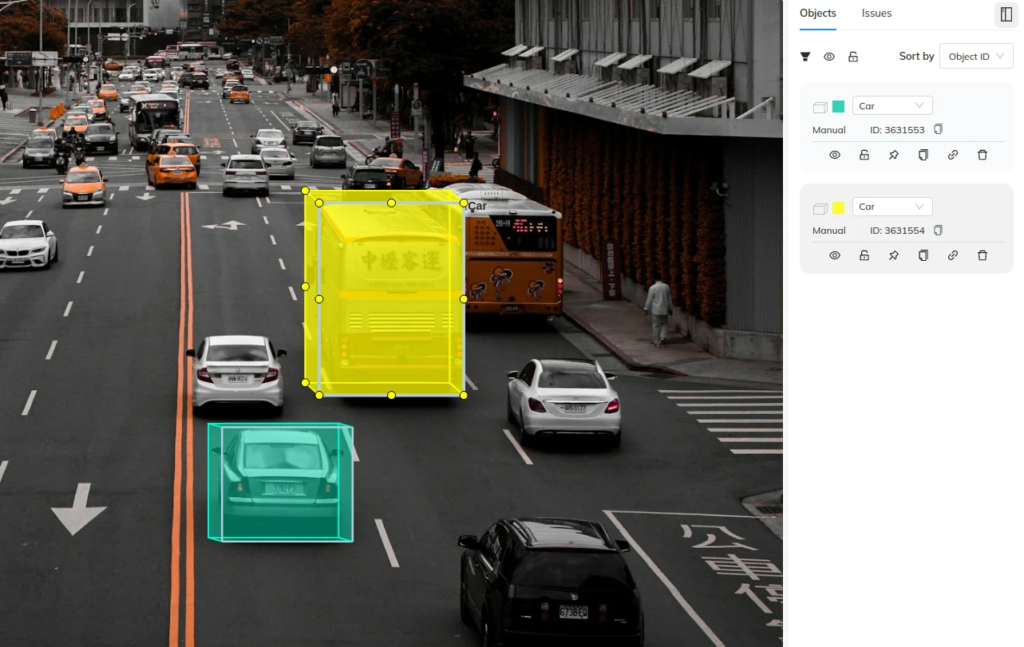

Using 3D Point Cloud to enhance LiDAR sensors’ 3D image-sensing capabilities to help autonomous vehicles understand their surroundings, create accurate maps of objects placed on the premises, and detect other objects’/vehicles’ movements for risk-free autonomous driving
Get experts on hand to draw precise polygons around oddly shaped objects. This way, computer vision can allow automated vehicles to recognize all visible objects on the road, including motorcycles, bicycles, cars, animals, etc., to promote safe driving avoiding collisions.
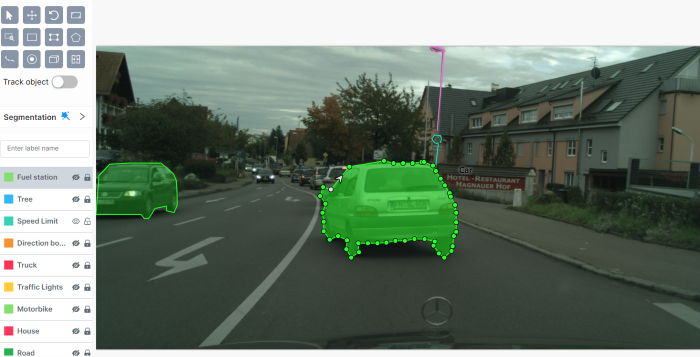
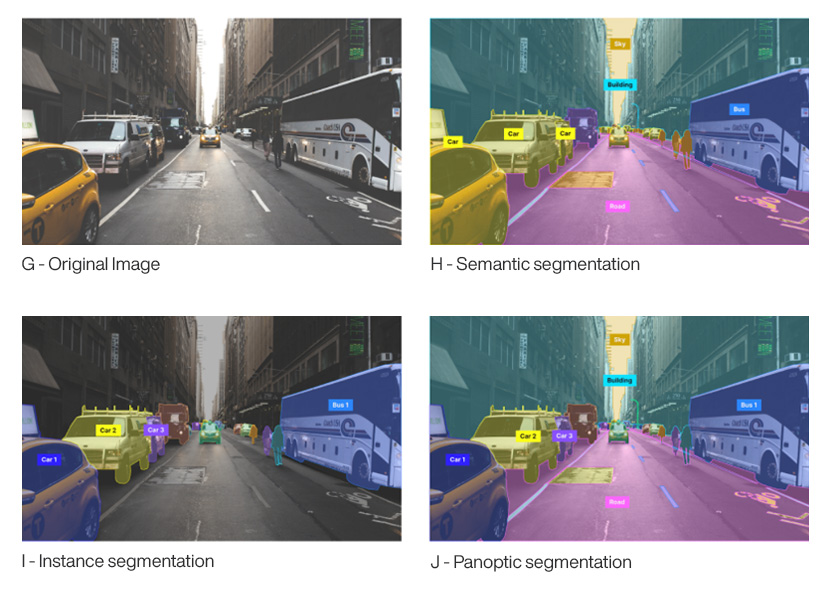
Semantic segmentation gives self-driving cars a competitive edge in object detection by treating multiple objects of the same class as a single entity. An image is semantically segmented by classifying all its pixels by their semantic content, such as all the people or all the cars.
Annotation & labeling of data can serve a variety of purposes within the transportation system, from enabling cars’ computer vision to gaining a better sense of the surrounding for safe autonomous driving to AI-enabled parking management.
The following use cases can provide you with more insight into how our data annotation & labeling expertise can benefit your autonomous driving initiatives:

Vehicles with autonomous capabilities need properly annotated & labeled data as it allows them to achieve higher levels of object detection accuracy. Cogito’s data expertise can assist in developing well-functional computer vision for self-driving vehicles.
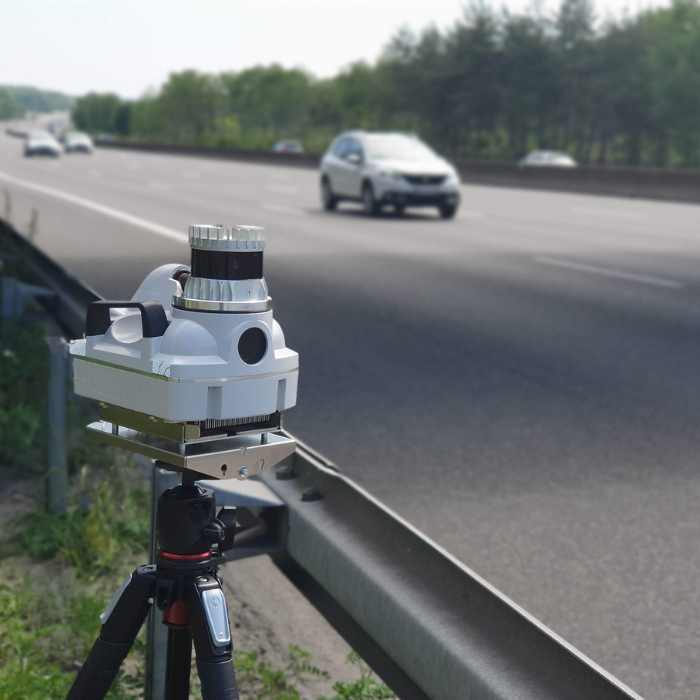
In addition to improving safety, AI can reduce human error and speed up the process of detecting and responding to accidents. In order to build a traffic detection model that is effective, plenty of labeled data is needed — something where Cogito excels.

Get all the data support needed to develop lane and road edge detection models, which help human drivers stay on track. Train autonomous vehicles to recognize other road markings, like arrows, STOP signs, and vertical landmarks, for safe driving.

Enhance road safety with pathway monitoring, people counting, dwell time analysis, and more. Leverage our AI training data to build an automated traffic flow analysis system that tracks real-time counts of vehicles, buses, and trains.
Video surveillance enables monitoring of road networks, intersections, tunnels, and bridges. With our high-quality annotated and labeled data, Automatic Incident Detection systems can identify traffic incidents more quickly and accurately.
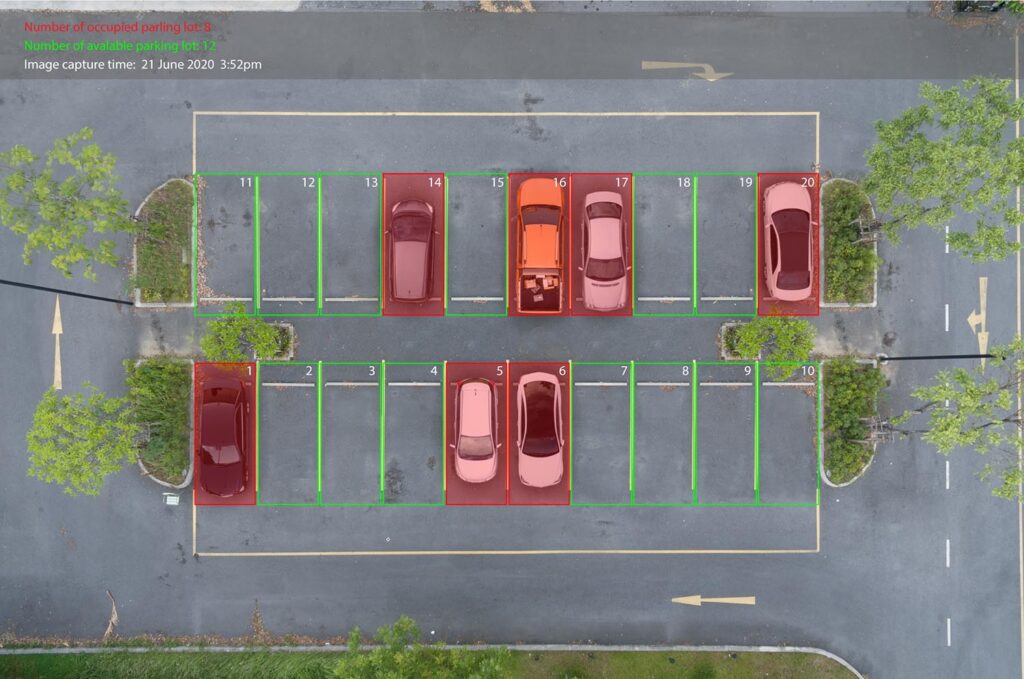
IoT tools in AI-driven smart parking management systems track both parked vehicles and available spaces in parking lots. By integrating sensor and camera data, Coral Mountain Data enables the development of intelligent parking management solutions.
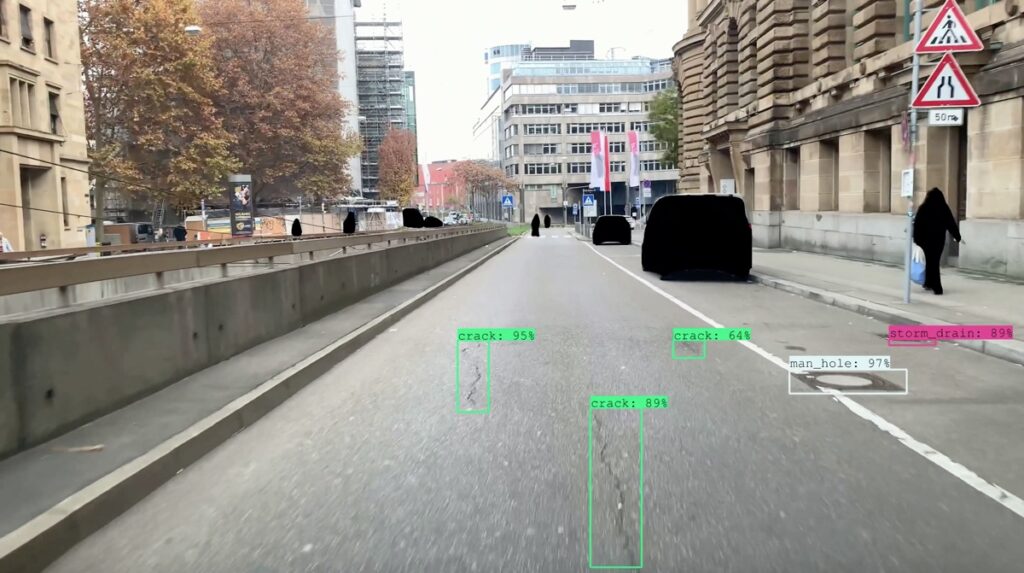
One of the biggest challenges in managing large transport networks is effective Road Condition Monitoring (RCM). With our data, you can develop AI-powered in-vehicle optical monitoring systems that classify and assess road conditions in real time.
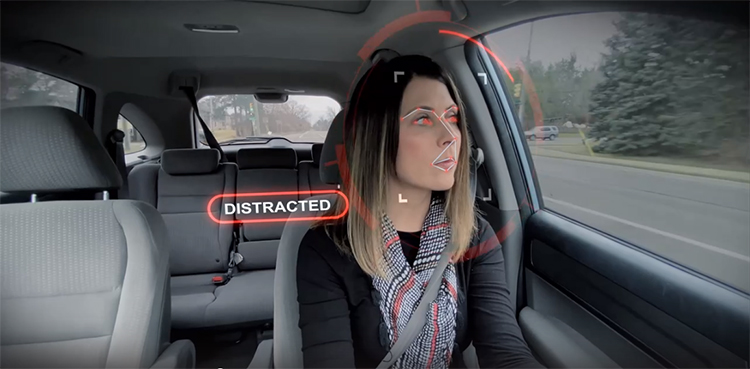
Accelerate AI development for self-driving cars by partnering with a data expert experienced in autonomous vehicles. Coral Mountain Data provides high-quality data to power Driver Monitoring Systems (DMS) and Occupant Monitoring Systems (OMS).
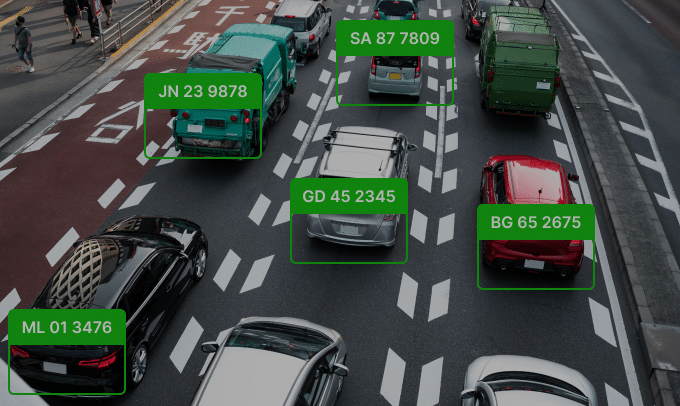
Auto Number Plate Recognition (ANPR) enables automatic reading of vehicle license plates. Our expertise in natural language processing supports the development of advanced optical character recognition models for these systems.
Coral Mountain Data provides high-quality training data to power AI solutions in agriculture, from crop health monitoring and livestock management to plant fructification detection and beyond. Our AI data practices follow a strong ethical framework, ensuring GDPR and CCPA compliance, certification standards, fair pay, and a commitment to diversity and inclusion.
Office
Data Factory

Copyright © 2024 Coral Mountain Data. All rights reserved.
